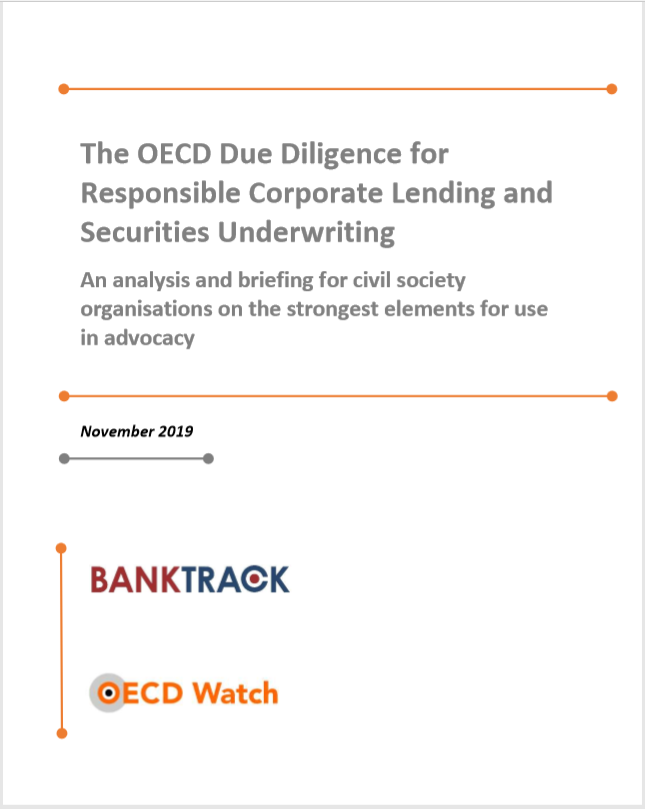New OECD guidance clarifies banks’ responsibilities to prevent and address adverse impacts

On October 28th, 2019, the OECD launched new guidance on Due Diligence for Responsible Corporate Lending and Securities Underwriting (hereinafter “the guidance”). The guidance is based and elaborates on the OECD Guidelines for Multinational Enterprises, providing authoritative clarifications of banks’ responsibilities to prevent adverse impacts on human rights and the environment. This is the OECD’s second guidance paper on responsible business conduct in the financial sector, following the 2017 guidance on Responsible Business Conduct for Institutional Investors.
This new guidance represents important progress and a step forward in the international normative framework that serves to encourage responsible conduct by banks and other financial sector actors and that also serves to hold financial actors accountable for adverse social and environmental impacts associated with their activities. It provides authoritative clarifications of government-backed expectations of banks, making particularly important clarifications on issues related to when a bank has “contributed” to an adverse impact through its lending or underwriting and what role a bank can and should play in remediating adverse impacts associated with its activities.
The 48 governments adhering to the OECD Guidelines for Multinational Enterprises have made a commitment to promote this guidance with banks and monitor its implementation, and banks operating or headquartered in these 48 countries are expected to follow the guidance. Civil society, including trade unions, non-governmental organisations (NGOs), and individuals, who feel that a bank has not abided by the recommended responsible behaviour can file a complaint against the bank at the National Contact Point (NCP) in the country in which the bank is headquartered and request that the NCP refer to the guidance in providing recommendations to the bank.
Some key areas in which the new paper provides important clarifications and guidance related to the due diligence and responsible conduct expected of banks include:
- Relationship of banks to adverse impacts and remedy
- Bank-level grievance mechanisms
- Transparency and client confidentiality
- Sustainability responsibilities
- Public policy advocacy
- Engagement with rightsholders
- Disengagement and divestment
OECD Watch and Banktrack have developed a briefing analysing and elaborating on each of these areas.The briefing can be accessed here.

